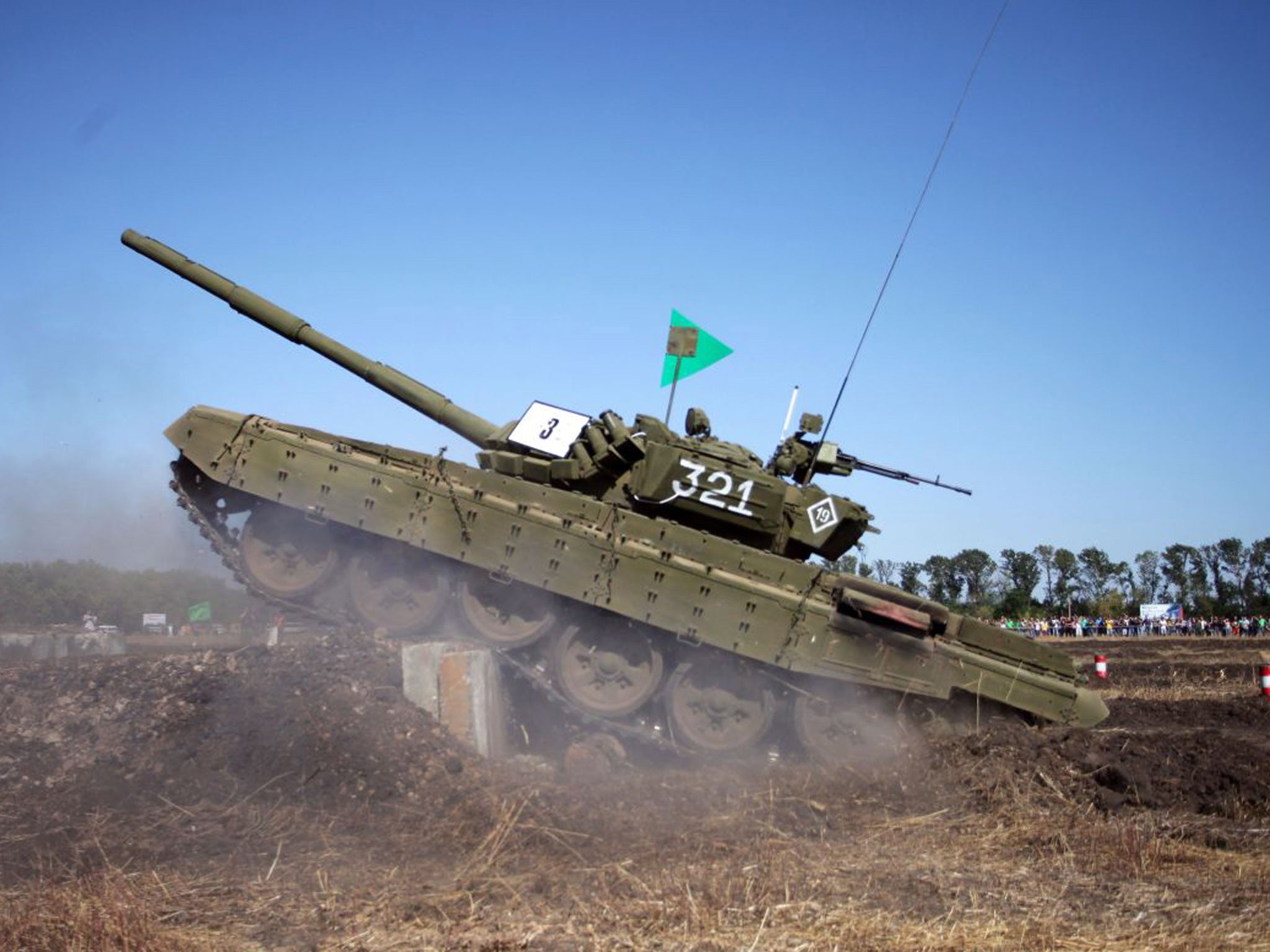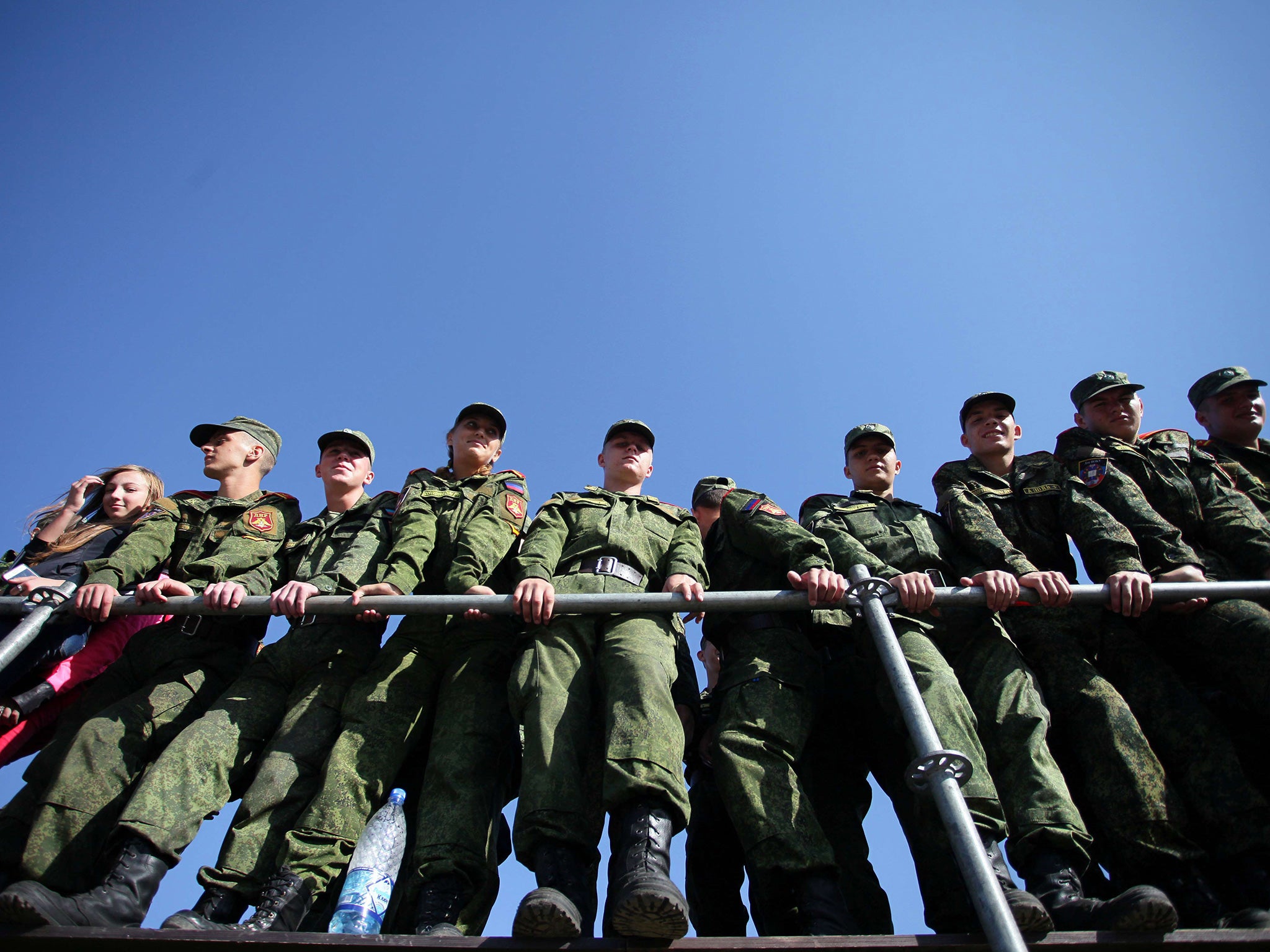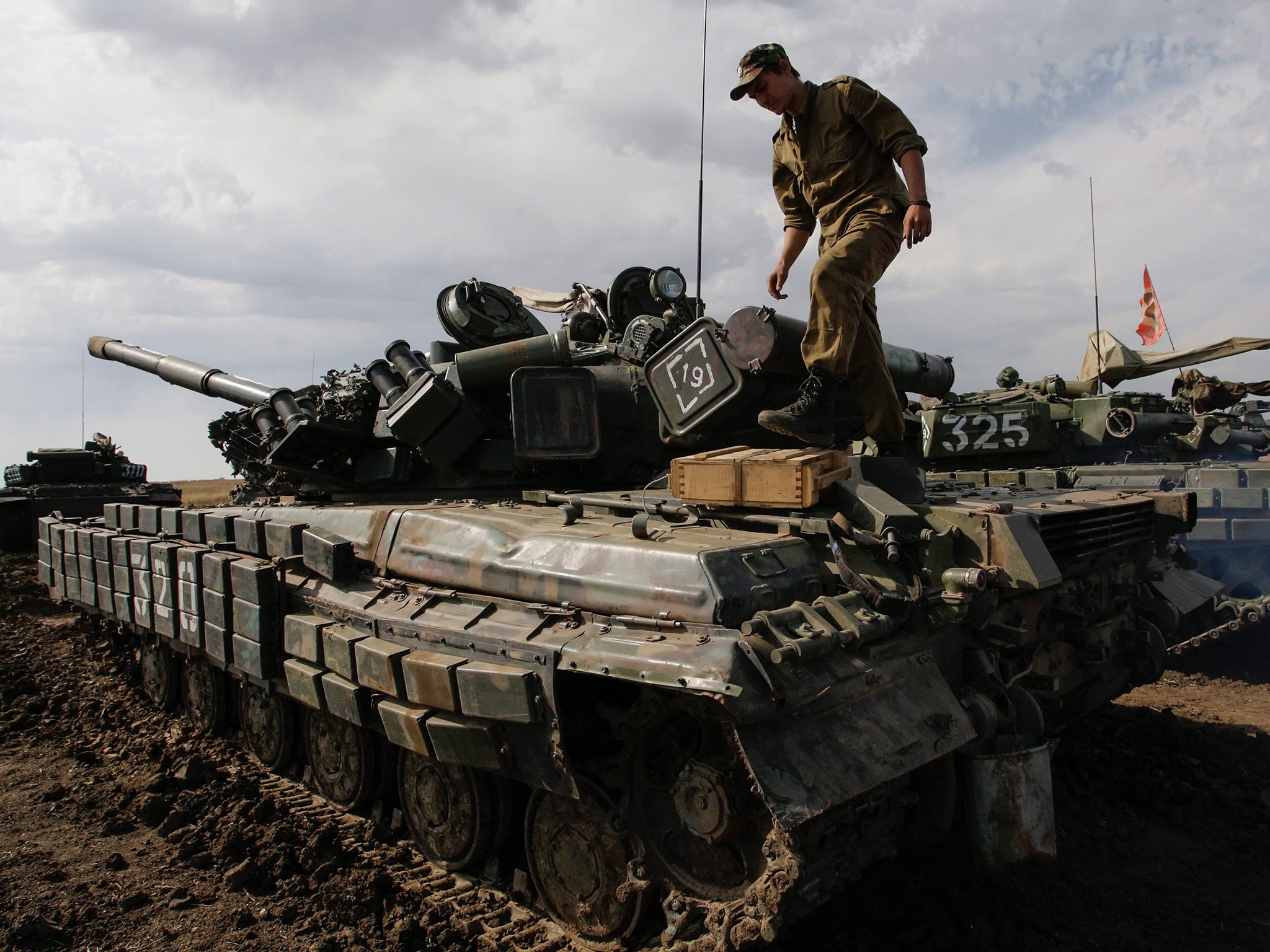Ukraine crisis: Vladimir Putin 'told Kiev he may accept peacekeeping force in eastern region'
Mr Putin is said to have made the remarks during informal talks at peace negotiations in Minsk earlier this year

Your support helps us to tell the story
From reproductive rights to climate change to Big Tech, The Independent is on the ground when the story is developing. Whether it's investigating the financials of Elon Musk's pro-Trump PAC or producing our latest documentary, 'The A Word', which shines a light on the American women fighting for reproductive rights, we know how important it is to parse out the facts from the messaging.
At such a critical moment in US history, we need reporters on the ground. Your donation allows us to keep sending journalists to speak to both sides of the story.
The Independent is trusted by Americans across the entire political spectrum. And unlike many other quality news outlets, we choose not to lock Americans out of our reporting and analysis with paywalls. We believe quality journalism should be available to everyone, paid for by those who can afford it.
Your support makes all the difference.Russia’s President, Vladimir Putin, has said he may agree to the deployment of international peacekeepers in eastern Ukraine, the Foreign Minister in Kiev, Pavlo Klimkin, has told The Independent.
Mr Putin, who is said to have made the remarks during informal talks at peace negotiations in Minsk earlier this year, has shown no public sign of accepting such a move. But as Ukraine prepares to push its own peacekeeper proposals at the United Nations General Assembly in New York this week, diplomats are scrutinising Moscow carefully for its reaction.
“We need a stabilising force, a neutral arbiter on the ground,” Mr Klimkin said. Such peacekeepers could take the form of “either UN troops, or a hybrid force made up with EU law enforcers”, he added.
He said Mr Putin had told him he “might accept a peacekeeping force” as Russia and Ukraine met alongside the leaders of France and Germany to hammer out the deal that has brought a partial halt to fighting between Ukrainian forces and pro-Russian rebels in the area known as Donbass.
How the Russians respond to Ukraine’s proposals will prove a litmus test for the whole Minsk peace deal, Mr Klimkin said. “Peace is entirely in Russia’s hands. If Russia is truly interested in stability and de-escalation, it will accept peacekeepers as the best way to go. If they aren’t ready to accept them, that tells you all you need to know about the … political will in Moscow for implementing Minsk.”
Under the agreement, control over the border between rebel areas and Russia is to be returned to Ukrainian forces by the end of this year. Ukraine insists that this is a “red line”, but most observers regard this as optimistic.

Mr Klimkin also said that Ukraine would use the General Assembly to secure broad support for an international tribunal to investigate the shooting down of flight MH17 more than 14 months ago, killing all 298 on board. He said he was confident of pursuing prosecutions of all those implicated in the event “right up the chain of command in Russia itself”. By its actions, Russia had “shown it was guilty of sponsoring terrorism” and “should be convicted in an international tribunal”, he added.
Evidence made available soon after the tragedy suggested the jet was downed by a sophisticated surface-to-air missile, launched from an area controlled by Russian-backed separatists – but Russia and the separatists have rejected such claims and, in July, Russia used its UN Security Council veto to block attempts to establish a UN tribunal.
Mr Klimkin says Ukraine is now pushing, instead, for a tribunal formally subordinate to the UN, but organised by the five nations involved in the MH17 criminal investigation team: Malaysia, Australia, Ukraine, Belgium and the Netherlands.

Otherwise, Ukraine will pursue prosecutions against Russia in the International Court of Justice. “Russia is in breach of the convention on financing terrorism, to which it is a signatory,” Mr Klimkin said. The difficulty in prosecuting those implicated in the tragedy is a “demonstration that some UN institutions are not fit for purpose,” he added. “It can’t be right that Russia is able to veto every vote on Ukraine.”
Join our commenting forum
Join thought-provoking conversations, follow other Independent readers and see their replies
Comments